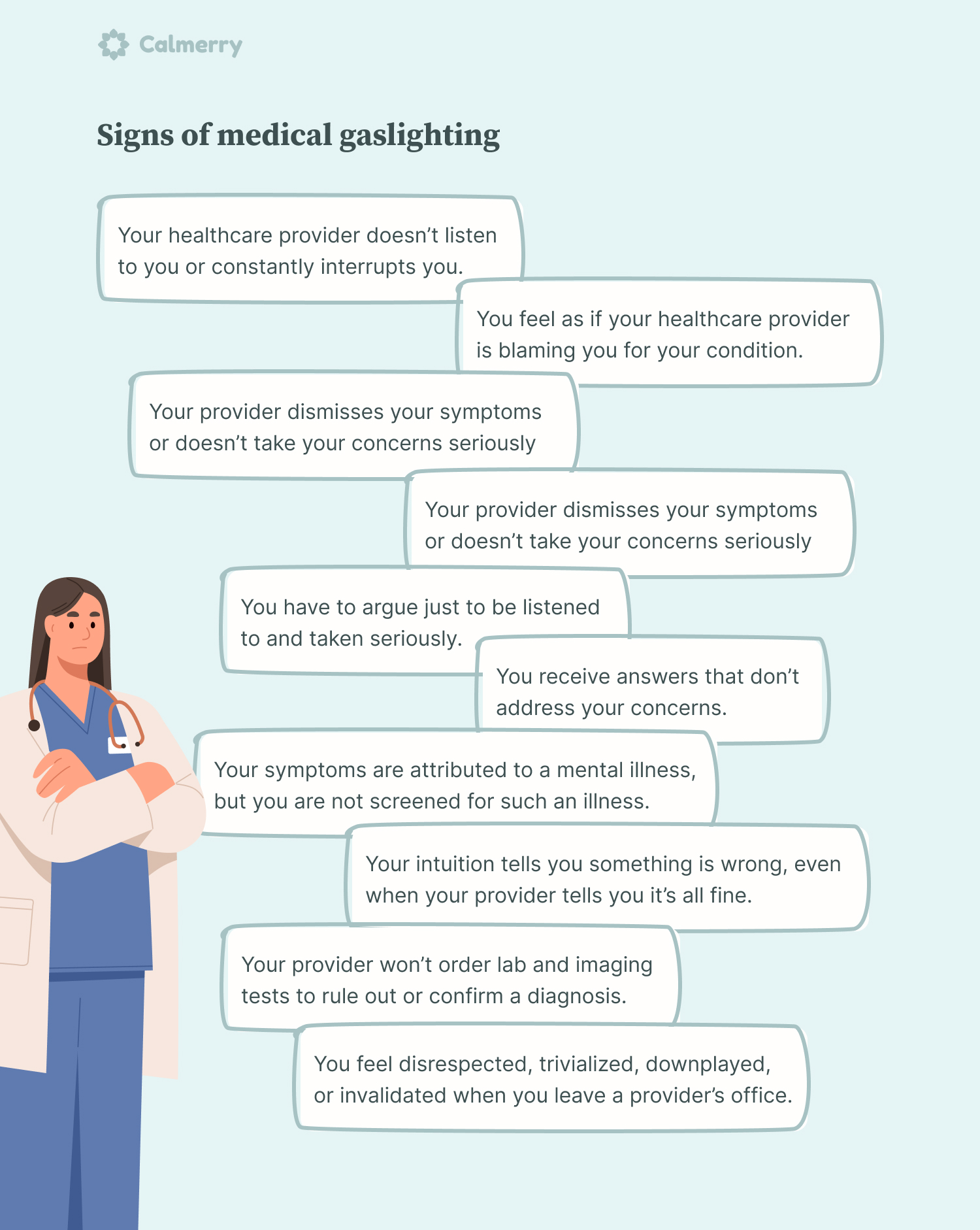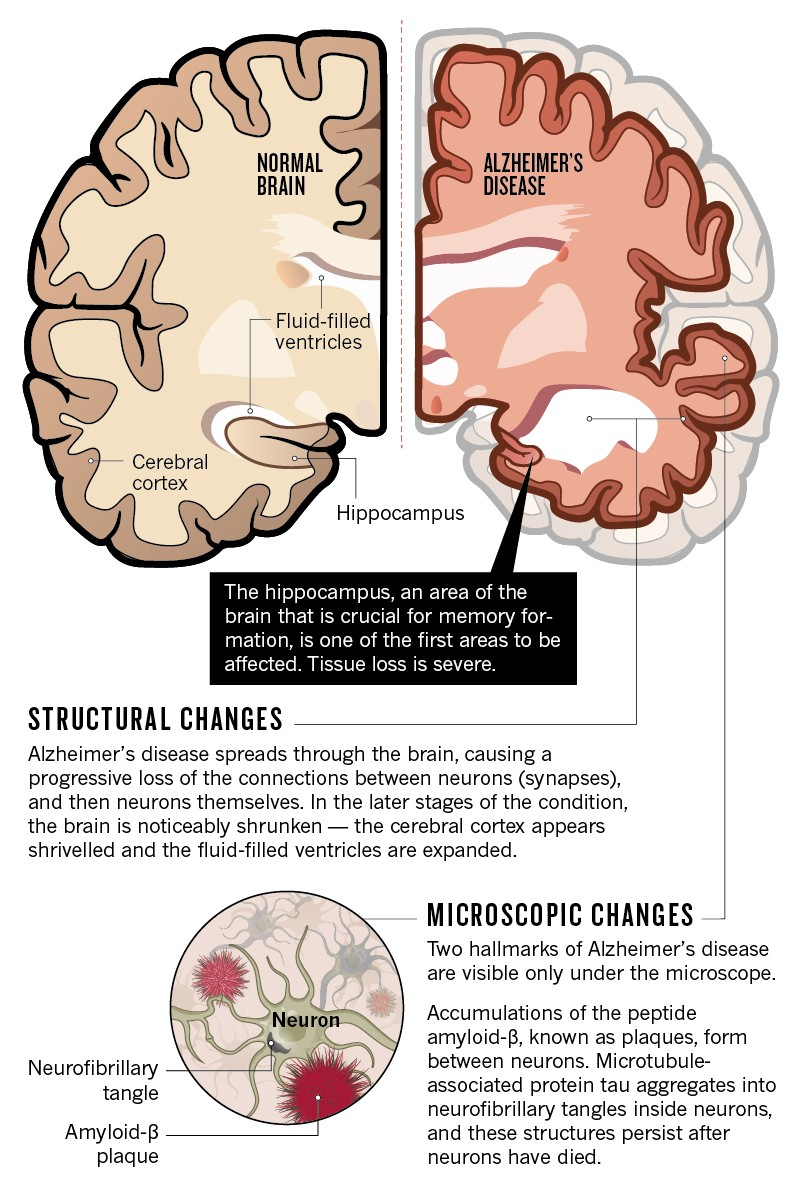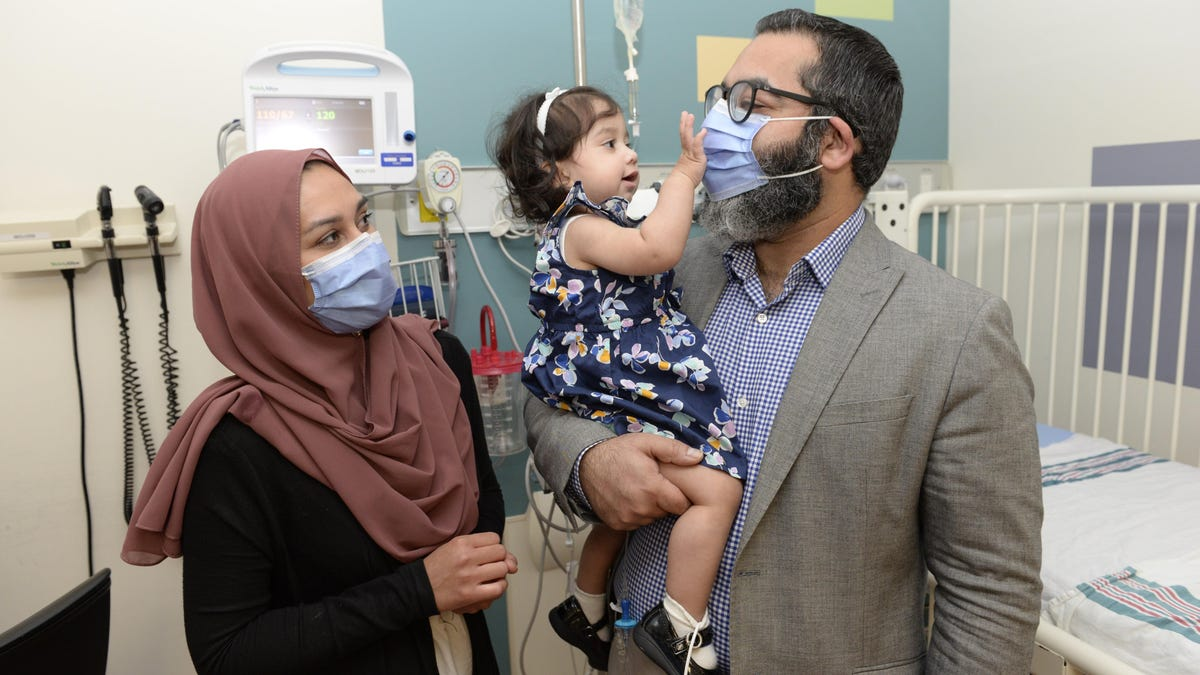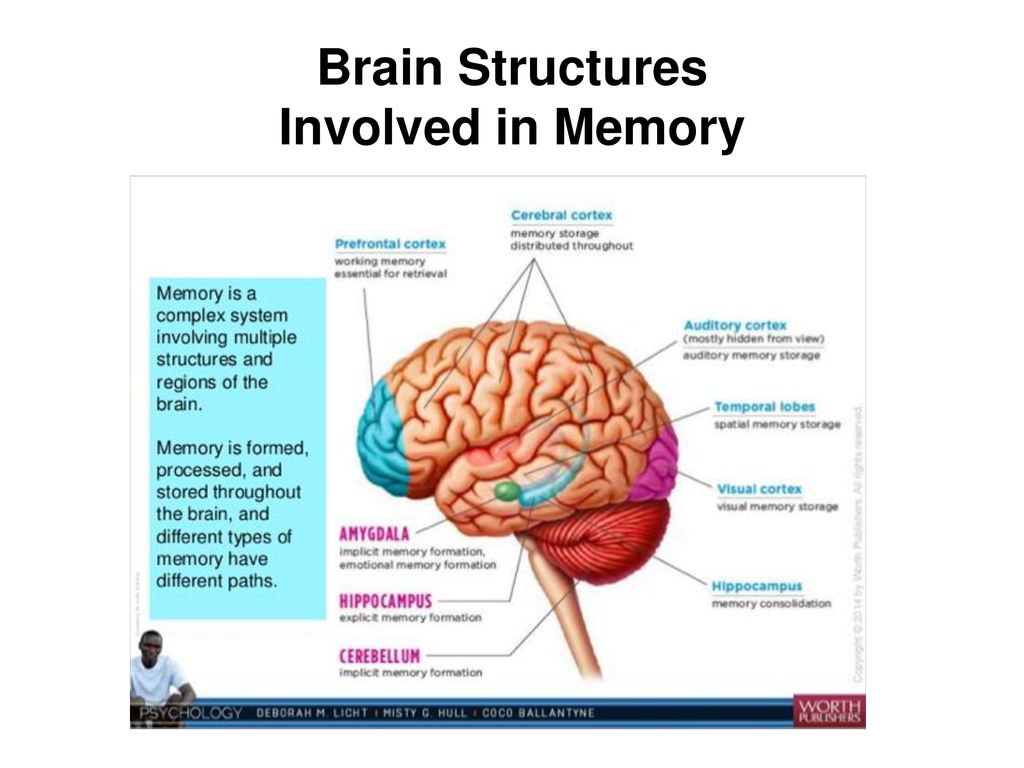Medical gaslighting is a complex phenomenon where patients feel dismissed or invalidated by healthcare providers, often leading to a detrimental impact on their mental and physical well-being. This form of medical invalidation can arise when doctors, overwhelmed by heavy caseloads and documentation pressures, fail to properly address a patient’s concerns, particularly with hard-to-detect conditions like long COVID or irritable bowel syndrome. As a result, doctor-patient communication can falter, leaving patients feeling unheard and unsupported in their symptoms management. The psychological impact of gaslighting in healthcare settings can be profound, contributing not only to patient distress but also to healthcare provider burnout as they grapple with the demands of their roles. Addressing this issue requires a compassionate approach that fosters understanding and collaboration between patients and their providers.
Exploring the topic of medical gaslighting reveals a troubling trend of patient experiences being minimized or overlooked within the healthcare system. Often characterized as medical invalidation, this issue emerges when patients, facing chronic and often invisible health conditions, express their symptoms but are met with skepticism or a lack of acknowledgment from their doctors. The crisis of trust between healthcare professionals and patients can exacerbate feelings of isolation and frustration, emphasizing the need for improved doctor-patient communication strategies. Furthermore, the phenomenon is exacerbated by the psychological ramifications of healthcare provider burnout, which can compromise the quality of interactions with patients. By recognizing the nuances of these experiences and adopting a more patient-centered approach, the medical community can work towards alleviating the adverse effects of this widespread issue.
Understanding Medical Gaslighting
Medical gaslighting refers to the experience where patients feel dismissed or minimized by healthcare providers regarding their health concerns, particularly when symptoms are difficult to diagnose. This phenomenon often leads to a feeling of frustration and isolation among patients, especially those with complex conditions like fibromyalgia or long COVID, where traditional medical tests may show normal results despite ongoing pain and suffering. The psychological impact of this gaslighting can be profound, as patients may begin to doubt their own experiences, leading to low self-esteem and increased anxiety.
An essential aspect of addressing medical gaslighting is refining doctor-patient communication to foster a more compassionate relationship. Healthcare providers need to acknowledge the emotional and psychological states of their patients, particularly when they encounter undiagnosed symptoms. Instead of labeling patients’ concerns as psychological, physicians should engage in more thorough discussions, allowing patients to share their experiences while practitioners validate their feelings, which can significantly improve outcomes in symptoms management.
The Role of Medical Invalidation in Healthcare
Medical invalidation occurs when providers dismiss or overlook a patient’s legitimate concerns due to a lack of understanding or time. This can be particularly harmful when clinicians are pressed for time and unable to engage in meaningful conversations with patients. Such behaviors can lead to chronic disappointment and distrust between patients and providers. Understanding this dynamic is critical for healthcare systems aiming to enhance the quality of care and patient satisfaction.
Improving awareness of medical invalidation among healthcare providers can lead to better outcomes for patients. Training programs that focus on empathy and open communication can empower doctors to create an environment in which patients feel heard and validated. By dedicating time to understand and discuss patients’ symptoms, physicians can mitigate feelings of invalidation and encourage a collaborative approach to health management, which can ultimately lead to improved patient psychological well-being.
Communication: The Key to Symptom Management
Effective doctor-patient communication is vital in symptom management. Patients are more likely to adhere to treatment plans when they feel understood and supported. When they perceive that their providers are genuinely interested in their concerns, it fosters a stronger therapeutic alliance. This relationship helps in unpacking complex health issues and encourages patients to openly communicate their symptoms, resulting in more tailored and effective treatment approaches.
Training healthcare providers in active listening and empathy can significantly improve patient outcomes. As physicians learn to engage in meaningful dialogue, patients become more comfortable discussing their experiences, which is crucial for identifying underlying conditions. This improved communication can also decrease the incidence of medical invalidation, enabling healthcare providers to offer more supportive and comprehensive care.
The Psychological Impact of Gaslighting in Medicine
The psychological impact of medical gaslighting can have lasting effects on patients’ mental health. In addition to feelings of anger and confusion, patients often experience elevated anxiety and depression when they feel their symptoms are not taken seriously by their healthcare providers. This invalidation can lead to a breakdown in trust between patient and doctor, hindering the healing process and the patient’s overall well-being.
Moreover, understanding the psychological ramifications of gaslighting is essential for healthcare workers. Developing a trauma-informed approach can empower doctors to recognize when their patients are struggling with the emotional aftermath of invalidation. By fostering an environment where patients feel safe to explore their symptoms without fear of dismissal, healthcare providers can not only enrich their relationships with patients but also contribute positively to their mental health journeys.
Doctor-Patient Dynamics and Burnout
The dynamics within doctor-patient relationships significantly influence the experience of both parties. High stress and burnout among healthcare providers can contribute to medical invalidation as doctors may unconsciously rush through appointments, inadvertently failing to connect with their patients’ emotional needs. Addressing healthcare provider burnout is crucial for fostering an environment where meaningful conversations can thrive, enhancing patient experiences.
To combat provider burnout, healthcare systems must prioritize work-life balance and support structures for physicians. This can involve restructuring workloads, increasing staffing, and providing mental health resources. Creating a supportive environment not only helps prevent burnout but also encourages providers to engage more deeply with their patients, ultimately leading to enhanced communication and better health outcomes for all.
Fostering Compassionate Care in Healthcare Systems
Integrating compassionate care principles into healthcare systems can mitigate the occurrences of medical gaslighting. Compassionate care emphasizes understanding the full spectrum of a patient’s experience, which includes their emotional, psychological, and physical health. When healthcare providers are trained to approach patient interactions with empathy and openness, it can help dissolve potential barriers caused by time constraints and frustration.
Moreover, establishing protocols that prioritize patient communication is essential in healthcare settings. Such measures may include longer appointment times for complex cases, ensuring that patients can express their concerns fully. By prioritizing compassionate care, healthcare systems can build trust, enhance symptom management, and significantly reduce instances of medical gaslighting, ultimately benefiting both patients and providers.
Addressing Patient Concerns with Empathy
Empathy is a powerful tool in healthcare that can leave a lasting impact on patient experiences. When physicians demonstrate understanding and validation of patient concerns, it helps create an atmosphere of trust and security. This empathetic approach can significantly improve outcomes for patients who have been historically gaslighted about their conditions.
Training programs aimed at enhancing empathy in physician education can prepare future healthcare workers to address the emotional aspects of patient care. By equipping providers with the skills needed to handle sensitive conversations about symptoms and concerns, they can develop meaningful relationships that promote better health outcomes, reduce feelings of invalidation, and combat the psychological effects of gaslighting.
Systemic Changes for Healthcare Improvement
Addressing systemic issues within healthcare is vital for reducing medical gaslighting incidents. By prioritizing structural reforms that alleviate pressures placed on healthcare providers, such as overbearing caseloads and administrative burdens, organizations can foster an environment where attentive and patient-centered care is the norm.
Implementing changes that balance provider workload and encourage meaningful patient interaction can have profound effects. Such measures not only improve doctor-patient communication but also enhance overall healthcare quality, leading to reduced burnout among providers and improved satisfaction among patients. Ultimately, a holistic approach to reform can help eliminate medical gaslighting and ensure that every patient feels valued and understood.
The Importance of Patient Education
Educating patients about their health conditions and available resources can significantly enhance their experiences within the healthcare system. Empowered patients who understand their symptoms and treatment options are more likely to advocate for themselves, effectively reducing their potential for experiencing medical gaslighting. By being informed, they can engage more confidently in discussions with healthcare providers, improving overall communication.
Furthermore, educating healthcare providers about common misconceptions surrounding patient experiences can equip them to respond more empathetically. By fostering an environment of mutual learning where patients and providers exchange knowledge, the medical community can work together to dismantle barriers that contribute to medical invalidation and enhance the pursuit of effective symptom management.
Frequently Asked Questions
What are common symptoms of medical gaslighting in healthcare settings?
Patients often experience feelings of invalidation, confusion about their health issues, and frustration after consultations where their concerns are dismissed. Medical gaslighting can manifest through a lack of empathy from healthcare providers, which may exacerbate symptoms and lead to chronic psychological distress.
How can doctor-patient communication help prevent medical gaslighting?
Effective doctor-patient communication is essential to prevent medical gaslighting. When healthcare providers actively listen and validate patients’ concerns, they create a supportive environment that encourages open dialogue. This transparency can lead to better symptoms management and strengthen the therapeutic relationship.
What is the psychological impact of medical gaslighting on patients?
The psychological impact of medical gaslighting can be profound, leading to decreased self-esteem, anxiety, and chronic stress. Patients may doubt their own experiences, leading to a sense of isolation and helplessness, which complicates symptoms management and can worsen their overall health.
How does medical invalidation relate to healthcare provider burnout?
Healthcare provider burnout is often a result of overwhelming caseloads and administrative pressures, which can lead to medical invalidation during patient interactions. When providers are stressed or rushed, they may unintentionally dismiss patient concerns, exacerbating feelings of gaslighting and invalidation in vulnerable patients.
What steps can be taken to improve symptoms management in patients experiencing medical gaslighting?
To improve symptoms management, healthcare providers should prioritize compassionate communication, actively engage with patients’ narratives, and foster environments that promote trust. Encouraging patients to share their experiences and validating their feelings can counteract the effects of medical gaslighting.
How can patients recognize when they are experiencing medical gaslighting?
Patients can recognize medical gaslighting by noting whether their symptoms are continuously dismissed, whether they feel invalidated in their experiences, or if their concerns are minimized by healthcare providers. It’s crucial for patients to seek second opinions or advocate for themselves in these situations.
What role does train healthcare providers play in addressing medical gaslighting?
Training healthcare providers on empathy, effective communication, and the importance of validating patient experiences can significantly reduce instances of medical gaslighting. Continued education on psychological aspects of care can help providers manage their own burnout while improving patient outcomes.
What role does awareness of medical gaslighting play in patient care?
Awareness of medical gaslighting is vital in patient care as it empowers patients to recognize their rights. By understanding this concept, patients can better advocate for themselves, ensuring they receive appropriate attention and care for their symptoms, ultimately leading to improved health outcomes.
| Key Issue | Description |
|---|---|
| Medical Gaslighting | A phenomenon where patients feel dismissed by healthcare providers, often related to undiagnosed conditions or when psychological explanations are suggested. |
| Intent | Experts debate whether intent is necessary for classifying interactions as gaslighting. Many agree that most cases arise from misunderstandings rather than malicious intent. |
| Provider Pressures | Healthcare providers face increasing pressures, leading to high burnout rates and less time for patient interactions, which can foster feelings of invalidation. |
| Impact on Patients | Patients may feel their symptoms are not taken seriously, which can lead to distrust and a negative healthcare experience. |
| Systemic Changes Needed | Addressing the root causes such as excessive documentation and patient loads may help alleviate the pressures on providers and improve patient relationships. |
Summary
Medical gaslighting is a significant issue where many patients leave healthcare visits feeling invalidated and misunderstood, particularly when facing complex or poorly understood conditions. The term underscores the emotional and psychological impact of feeling dismissed by healthcare providers, often amidst their immense pressures and responsibilities. Providers, while striving to offer care, may inadvertently contribute to the problem due to high caseloads and systemic issues. Understanding medical gaslighting fosters a pathway towards compassion and reform within healthcare, ultimately aiming to improve patient-provider relationships.



